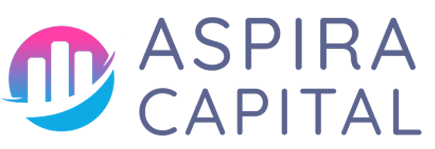Understanding Budgeting Strategies
Budgeting strategies are essential tools for any financial management plan. They provide a roadmap for effectively managing resources and aligning spending with financial goals.
- Zero-Based Budgeting: Every dollar of income is allocated to expenses, savings, or debt repayment.
- Incremental Budgeting: Budgets are based on the previous year’s figures with strategic adjustments.
- Activity-Based Budgeting: Budgets are based on activities necessary to achieve specific financial outcomes.
- Flexible Budgeting: Budgets can be adjusted based on changes in revenue or other factors.
These diverse budgeting strategies can cater to various financial situations, ensuring that both personal and business budgets are effective.
Importance of Financial Planning
Financial planning plays a pivotal role in establishing a solid foundation for long-term financial success. Effective financial planning allows individuals and businesses to define their financial objectives clearly.
- Provides direction and purpose for financial decisions.
- Enables proactive management of finances.
- Helps identify potential obstacles to achieving financial goals.
- Facilitates informed investment choices.
By prioritizing financial planning, individuals can better prepare for unexpected expenses and navigate through economic uncertainties.
Effective Expense Tracking
To master budgeting strategies, implementing a robust expense tracking system is crucial. Knowledge of where money goes helps with achieving consistency and accountability in financial management.
- Automated Expense Tracking Tools: Use software programs or apps to track daily expenses effortlessly.
- Manual Tracking: Maintain a detailed logbook of every expense, encouraging awareness.
- Categorization: Break down expenses into categories to identify spending patterns.
- Regular Reviews: Conduct monthly reviews to assess spending and refine budgeting strategies.
By honing in on expense tracking, you can ensure that your budget adapts to your changing lifestyle and needs.
Implementing Cost Control
Cost control is a fundamental aspect of financial management that directly impacts budgeting efficiency. Effective cost control strategies can help minimize expenses and improve profitability.
- Benchmarking: Compare costs against industry standards to identify areas of improvement.
- Supplier Negotiation: Regularly review and negotiate contracts for better pricing.
- Energy Efficiency: Invest in energy-efficient solutions to reduce utility costs.
- Inventory Management: Minimize waste through better inventory practices and stock rotation.
Integrating these strategies fosters long-term profitability while maintaining fiscal responsibility.
Profit Forecasting Techniques
Recognizing potential revenue streams is vital for financial health. Using profit forecasting techniques allows individuals and businesses to predict future income with accuracy.
- Historical Data Analysis: Analyzing past performance can provide insight into future trends.
- Market Research: Understand market demands and trends to shape profit expectations.
- Scenario Planning: Develop multiple scenarios to gauge different outcomes based on various factors.
- Financial Modeling: Use spreadsheets to create detailed financial forecasts based on existing data.
Effective profit forecasting can empower businesses to create actionable steps for achieving financial success.
Setting Financial Goals
Without clear objectives, financial management can quickly become overwhelming. Setting specific, measurable, achievable, relevant, and time-bound (SMART) financial goals can offer clarity and direction.
- Short-term Goals: Focus on immediate needs, such as paying off debt or building an emergency fund.
- Medium-term Goals: Goals like saving for a vacation or home down payment that typically span 1 to 5 years.
- Long-term Goals: Plans for retirement savings or investment growth that require a multi-year perspective.
Aligning your budget to support these financial goals helps maximize potential returns.
Conducting Cash Flow Analysis
Understanding cash flow is key to financial health. Through cash flow analysis, individuals and businesses can ensure they have enough resources to meet obligations while supporting growth.
- Monthly Cash Flow Statements: Update your cash flow statements regularly to keep track of inflows and outflows.
- Identify Trends: Analyze seasonal variations in cash flow to plan for future expenses.
- Monitor Receivables: Ensure timely collection of receivables to maintain positive cash flow.
- Control Payables: Strategically manage when to issue payments to create favorable cash flow conditions.
Through diligent cash flow analysis, you can prevent financial squeezes and optimize liquidity.
Utilizing Budget Templates
Budget templates serve as essential tools that make it easier to manage finances. They provide a structured yet flexible approach to budgeting strategies.
- Spreadsheets: Create custom spreadsheets for personalized budget tracking.
- Online Tools: Leverage online platforms that offer pre-made templates with integrated calculations.
- Paper-Based Templates: Use printable templates for a hands-on approach, ideal for those who prefer physical documentation.
- Goal-Oriented Templates: Tailor templates to align with specific financial goals or business objectives.
Using appropriate budget templates streamlines the budgeting process and enhances financial organization.
Developing Financial Discipline
Financial discipline is the backbone of successful budgeting. Building a habit of financial responsibility can pave the way for achieving long-term success.
- Create a Financial Plan: Establish a comprehensive plan that guides spending and saving habits.
- Automate Savings: Set up automatic transfers to savings accounts to ensure consistent savings.
- Limit Impulse Purchases: Implement a waiting period before making non-essential purchases.
- Regularly Review Finances: Schedule regular check-ins to keep track of financial progress and make necessary adjustments.
By committing to these practices, you can cultivate financial discipline that enhances your budgeting strategies.
Small Business Budgeting Techniques
For small businesses, mastering budgeting is critical to sustainability and growth. Implementing effective small business budgeting techniques ensures that cash flow aligns with strategic planning.
- Sales Forecasting: Estimate realistic sales projections to guide budgeting decisions.
- Expense Control: Keep operating expenses low by monitoring all costs and optimizing resource allocation.
- Cash Reserve Fund: Maintain a safety net to cover unexpected expenses or slow sales periods.
- Regular Performance Review: Conduct quarterly assessments of budget performance and adapt as necessary.
Ultimately, adopting effective small business budgeting techniques can lead to improved cash flow management and financial resilience.

